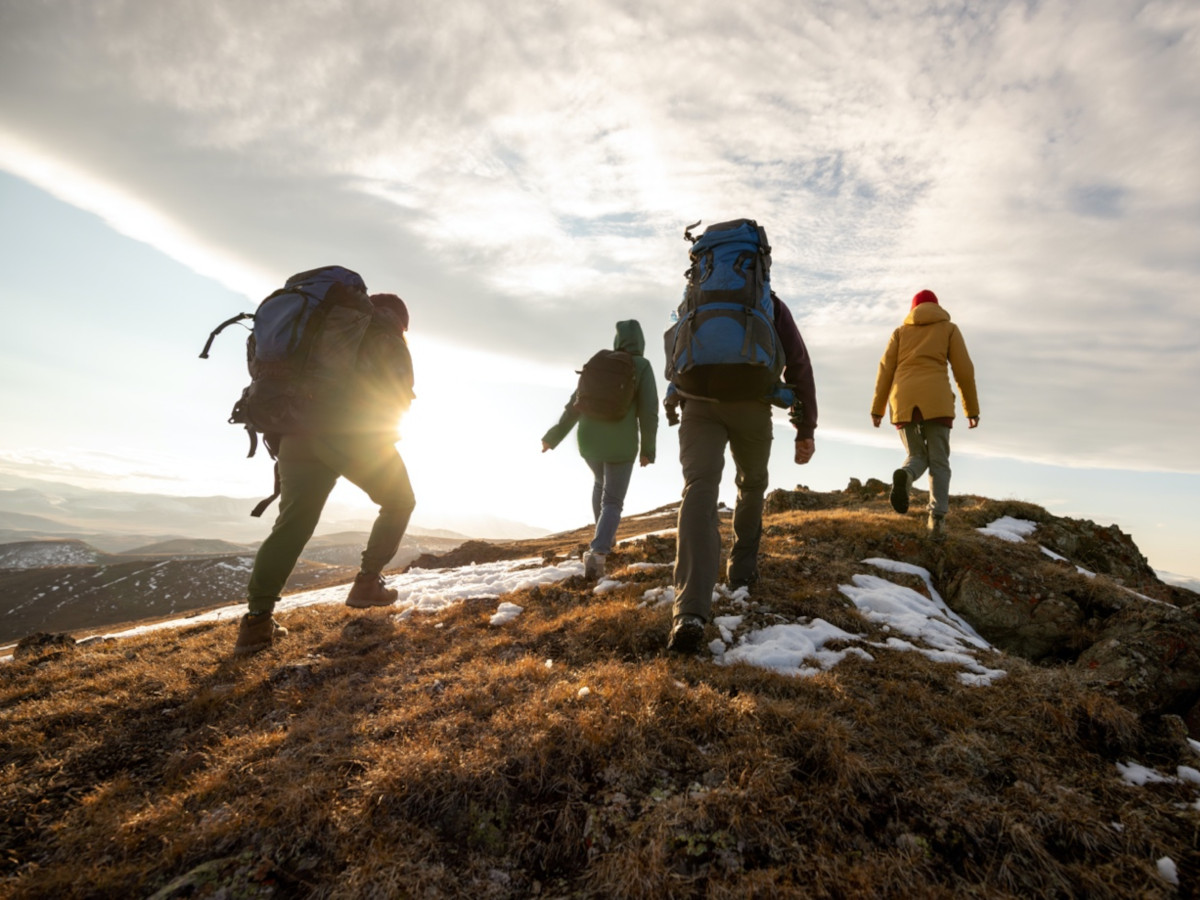Equipment and tips for a walk in the mountains

Connecting with nature has become another of people's priorities in the course of their lives. Outdoor encounters, field trips and walks in the mountains are one of the options to achieve this. In this article you will find tips and a list of equipment to have the best walk in the mountains and connect with nature in a responsible and safe way.
Tips for safe walking in the mountains
Hiking or weekend trips in the mountains is an adventure that involves taking care of the details so that everything goes smoothly. If you want your stay in the mountains to go smoothly, we invite you to follow these recommendations before, during and after your trip:
- Before the walk.
Planning for a hike in the mountains is a must. Planning the route, the possible means of transport, the type of equipment to take with you depending on the number of days of the hike and even keeping in mind what the weather will be like will make it easier to stay in the area.
It is also important to know in advance if the excursion or tour site is in an area at risk of landslides, fire or flooding and to know all possible routes and emergency exits or evacuation points to avoid any kind of mishap.
- During the walk.
If minors, especially infants, the elderly or people with special needs are going on the walk, they should be given priority. They should not be left alone or allowed to leave the designated walking area.
Keeping to the chosen route and staying in a group minimises the chances of someone getting lost and encountering hazards that were not foreseen.
Finally, during the walk you should avoid burning or lighting fires in areas where fires may be caused or where the fauna and flora of the area may be at risk.
- After the walk.
If the walk ended without any mishap, it is time to return home, remember to take with you the waste that was generated during the walk and make sure that all the people who were at the site return home.
Walking equipment
Hiking, pottering or camping in the wilderness are activities that, although not professional if you are not, require certain equipment to be carried out. Here are some of the gear you might need depending on the occasion.
If it is a pot or river trip, it will be essential to have something to prepare food easily in case you don't take it with you. If children or non-swimmers are going, having floats and some life jackets will be a great help. Remember that children should always be accompanied by a responsible adult.
To get the most out of the river trips, the pool floats are a must-have complement. Of course, checking out the area and being in shallow areas is ideal for this type of trip.
When it comes to hiking in the mountains, comfortable shoes and clothes, waterproof jackets, a small amount of luggage and a GPS are essential equipment. It will also be necessary to carry water bottles, walking sticks depending on the type of route and even first aid tools.
Torches, good food, ropes and even a cutting implement are always welcome on mountain walks or hikes to avoid any mishaps.
Finally, if you're camping in the mountains, a tent, environmentally friendly cooking gear and additional tools such as binoculars, sun hats and even sunscreen and a physical map are among the must-haves.
What should you be aware of?
To make a good walk you have to think about even the little things. Have the right suitcases and travel bags for the type of trip.Taking only what you need for day-to-day life on site and always having food and hydration can make all the difference in the essentials for a walk.
However, there are other aspects that you should take into account that could be very useful before going for a walk in the mountains: knowing which places are allowed for this type of activity, what are the risks of the place, if there is any cost and even if it is a tourist or desolate place provide important information for you to plan the best walk.
Finally, reiterate about taking care of the environment: do not throw rubbish in rivers or on the road and take care of the nature around you.
Fastpacking is not about going faster. It's about going lighter.
If you come from classic trekking, this is the next step: learning to move with less weight,
more fluid and enjoying every kilometre more.
Join the Outsiders Newsletter and start discovering what lightness feels like.
